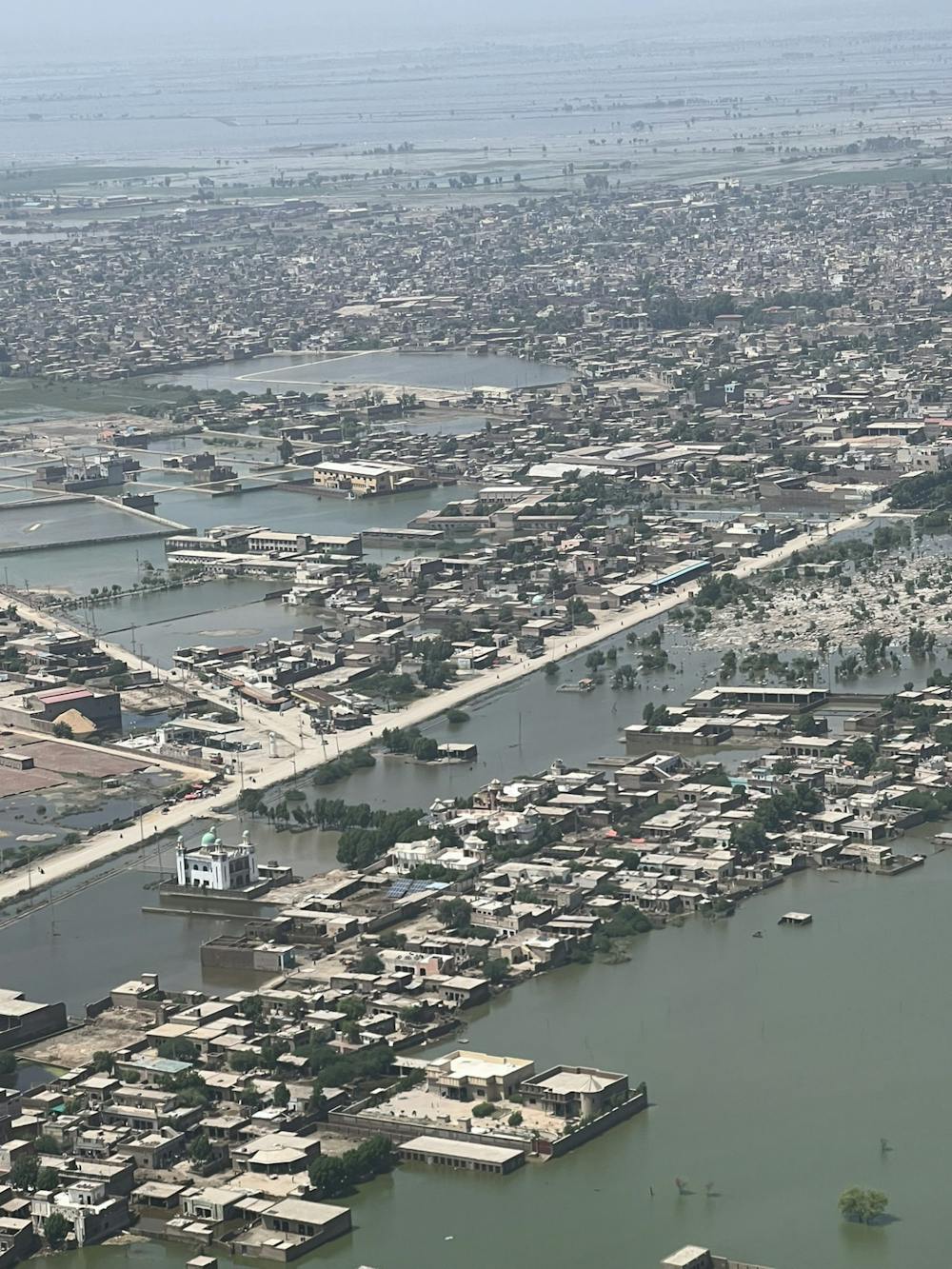By Amber Nodes
Staff Writer
Monsoons have been devastating Pakistan since mid-June of this year, and much of the infrastructure has been destroyed. Around eight million people have been displaced and at least 1,500 have been killed since the beginning of the monsoons, according to a report from the U.N. Over 500,000 people who have been displaced are living in shelters, drinking water is scarce and many of the people who have died were children.
“The Pakistani people are facing a monsoon on steroids -- the relentless impact of epochal levels of rain and flooding,” said António Guterres, Secretary-General of the U.N., in a video message.
The report describes how bridges and roads have been destroyed, and diseases have started to spread among the communities — one of which is cerebral malaria, which has no available treatment. It also states that the flooding could continue for up to 6 months before it starts to secede.
“Civil infrastructure is not built for the environment we are living in now,” said Dr. Nathan Magee, a climate scientist and physics teacher at the College. “It’s not built, it's not designed and wasn't engineered to handle the extremes of the flooding events that we are seeing.”
According to an article from the United Nations, Pakistan is one of the most vulnerable countries to the changing climate, even though its emission levels are comparatively lower than many other countries.
“Pakistan has never a more stark and devastating example of the impact of global warming,” said Pakistan’s prime minister Muhammad Shehbaz Sharif in a UN speech. “Life in Pakistan has changed forever.”
The disaster was made worse by a blend of many issues, like poor citizens with less accessibility, mountain slopes which exacerbated the flooding and the destruction of dams and climate variation, according to The Guardian. They state that because of the warming temperatures, there is more water vapor in the atmosphere, leading to higher rainfall.
In response to the flooding, the U.N. announced that a Flash Appeal of $160 million will be given to the Government of Pakistan. According to the United Nations, the main three objectives of the Flash Appeal are to deliver medical aid, prevent disease and make this help easily accessible.
Guterres attributes much of the destruction to climate change, saying in the video address that “it is outrageous that climate action is being put on the back burner as global emissions of greenhouse gasses are still rising, putting all of us – everywhere – in growing danger.”
Greenhouse gasses are responsible for the warming of the Earth through the greenhouse effect, according to the United Nations Environment Programme, with carbon dioxide, methane and nitrous oxide being the main contributors to global warming.
The UNEP states that nonrenewable energy sources, such as coal and oil, are among the major contributors to greenhouse gasses.
A report from the United States Energy Information Administration states that switching from non-renewable energy to renewable energy will lower the levels of greenhouse gas. Examples of renewable energy include solar, geothermal, wind and hydropower, among others.
“The number one agreed upon thing that nearly all scientists would endorse is that emissions of greenhouse gasses need to be dramatically reduced,” said Dr. Magee.
Guterres says that Pakistan asks for help from the international community and cautions other countries about the dangers of climate change.
“Let’s stop sleepwalking towards the destruction of our planet by climate change,” said Guterres. “Today, it’s Pakistan. Tomorrow, it could be your country.”







